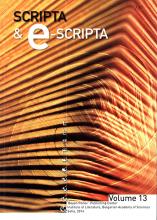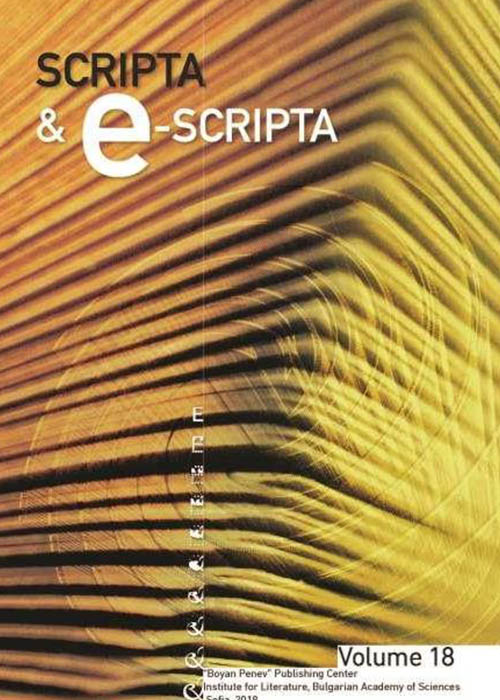Constructing a Hagiographic “Canon” in the South Slavonic Literary Tradition. Stanislav’s Menologion: A Case Study

- Author(s): Diana Atanassova-Pencheva
- Subject(s): Language and Literature Studies //
-
Published by: Institute for Literature BAS

- Print ISSN: 1312-238X
- Summary/Abstract:
Stanislav’s Menologion (NBKM 1039) is dated to the fourteenth century but it is believed that it preserves much earlier translations originating in the early period of Bulgarian literature. Thus Stanislav’s Menologion is viewed in scholarship as a key codex to the history of the early medieval Slavic hagiographic texts. It represents what we can call medieval hagiographic "canon", a compendium of works disseminated until a later period (until around the 17th c.) among South Slavs. The article addresses issues related to the composition of the manuscript and cultural conventions proved to be important for its formation. Since Stanislav’s Menologion does not reproduce Byzantine pre-Metafrastov menologia (at least not from those described in the capital work of A. Erhard), the reasons for the formation and the reasons for the relative stability of the composition are sought elsewhere. One hypothesis of the study is that the prescriptive-legislative nature of its contents is connected with Typikon. Therefore, the composition of the manuscript is compared to the Typikon that was authoritative in the fourteenth century. Also, the contents of this manuscript is compared to the contents of Service Menaia. The study traces the links of the prescriptions of Typika, institutionalized reading and the formation of a significant corpus of Church feasts that led to the codification of the corpus of texts which were copied and disseminated in Slavic milieux in the late Middle Ages.
Journal: Scripta & e-Scripta vol. 13, 2014
-
Page Range: 131-147
No. of Pages: 17
Language: English - LINK CEEOL: https://www.ceeol.com/search/article-detail?id=33172
-
Diana Atanassova-PenchevaAssoc. Prof., PhD Sofia St Kliment Okhridski University, Bulgaria
-
SUBJECT: Language and Literature Studies //KEYWORDS:
-